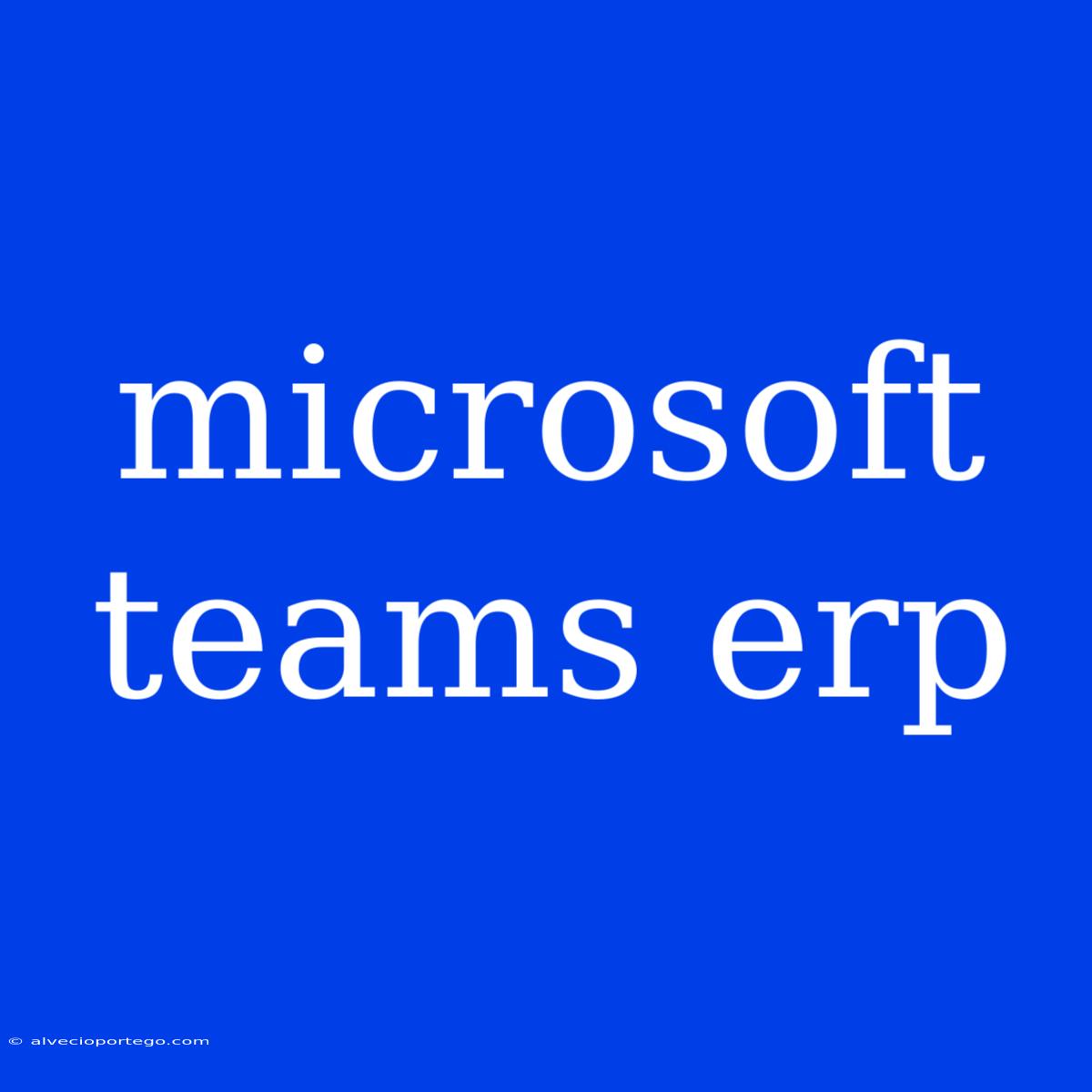Microsoft Teams ERP: Integrating Business Processes and Communication
Microsoft Teams, a popular collaboration platform, has increasingly become more than just a chat tool. With its expanding functionality, it has opened up possibilities for integrating Enterprise Resource Planning (ERP) systems. This article explores the potential of Microsoft Teams ERP, its benefits, and the challenges it presents.
What is Microsoft Teams ERP?
Microsoft Teams ERP refers to the integration of various ERP functionalities directly within the Teams platform. This allows businesses to manage core business processes, including:
- Finance and Accounting: Manage budgets, track expenses, generate invoices, and reconcile accounts.
- Supply Chain Management: Track inventory, manage orders, and streamline logistics.
- Human Resources: Onboard new employees, manage payroll, and track performance.
- Sales and Marketing: Manage customer relationships, track leads, and analyze sales data.
Essentially, Teams ERP aims to bring the power of traditional ERP systems into a familiar, collaborative workspace.
Benefits of Microsoft Teams ERP:
- Improved Collaboration: Streamline communication between departments and teams by integrating ERP data directly into chat conversations, channels, and meetings.
- Enhanced Productivity: Reduce time spent switching between applications by accessing ERP data and tools directly within Teams.
- Real-time Access to Information: Stay up-to-date on key metrics and business insights without relying on separate dashboards or reports.
- Reduced Costs: Potentially lower costs associated with implementing and maintaining traditional ERP systems.
- Seamless User Experience: Utilize a familiar interface that users already understand, minimizing training requirements.
Challenges of Microsoft Teams ERP:
- Data Security: Ensuring secure access and control over sensitive ERP data within Teams is crucial.
- Integration Complexity: Integrating Teams with existing ERP systems can be challenging and require specific technical expertise.
- Limited Functionality: Teams ERP is still a relatively new concept, and its current capabilities might not fully meet all business requirements.
- Scalability: Managing large amounts of data and complex business processes within Teams could pose challenges for larger organizations.
Conclusion:
Microsoft Teams ERP holds immense potential to transform the way businesses operate. Its ability to bridge the gap between communication and core business processes can improve efficiency and collaboration. However, it's essential to carefully evaluate the challenges and consider factors such as security, integration complexity, and scalability before implementing Teams ERP. As the platform continues to evolve, we can expect more comprehensive and sophisticated ERP solutions within the Teams environment.

